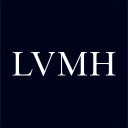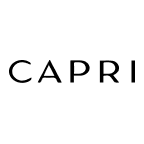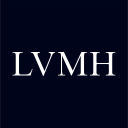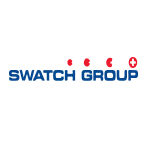LVMUY

LVMH Moët Hennessy - Louis Vuitton, Société Européenne
LVMUY
(3.2)130,81 USD
14.37% ROA
22.19% ROE
23.58x PER
329.190.645.425,96 USD
58.11% DER
2.13% Yield
16.31% NPM
LVMH Moët Hennessy - Louis Vuitton, Société Européenne Stock Analysis
LVMH Moët Hennessy - Louis Vuitton, Société Européenne Fundamental Analysis
Fundamental analysis in stock investing is like studying the foundation of a house before buying it. It involves looking at a company's financial health, like its earnings, assets, and debts, to determine if it's a good investment based on its fundamental strength and potential for growth.
| # | Analysis | Rating |
|---|---|---|
| 1 |
ROE
The stock's ROE exceeds expectations (27.55%), revealing strong profitability and efficient use of shareholders' equity, making it an attractive investment opportunity. |
|
| 2 |
ROA
This stock has a great ability to make a lot of money from the things it owns, which makes it a really good investment for smart investors. |
|
| 3 |
PBV
With a remarkably low PBV ratio (0x), the stock offers substantial upside potential at a bargain price. |
|
| 4 |
Assets Growth
With continuous growth in revenue over the last five years, this company has proven to be a lucrative investment option, showcasing its strong financial performance. |
|
| 5 |
Dividend
The company's consistent dividend distribution over the past five years reflects its dedication to providing shareholders with steady returns, making it an appealing choice for investors seeking income stability. |
|
| 6 |
DER
The stock maintains a fair debt to equity ratio (64%), indicating a reasonable balance between the money it owes and the ownership it possesses. |
|
| 7 |
Revenue Growth
With a track record of continuous revenue growth in the last three years, this company offers a promising investment opportunity |
|
| 8 |
Net Profit Growth
This company's net profit has been consistently on the rise over the past three years, indicating a strong financial performance and making it an appealing investment opportunity. |
|
| 9 |
Graham Number
The Graham number of this company suggests that its stock price may be overvalued, indicating a less favorable investment opportunity. |
|
| 10 |
Dividend Growth
Investors should note the company's stagnant dividend growth over the past three years, indicating limited profitability and potentially diminishing returns. |
|
| 11 |
Buffet Intrinsic Value
Based on Warren Buffett's formula, the company's stock seems overpriced (0), indicating a potential drawback for investors as its market price exceeds its estimated intrinsic value. |
LVMH Moët Hennessy - Louis Vuitton, Société Européenne Technical Analysis
Technical analysis in stock investing is like reading the patterns on a weather map to predict future weather conditions. It involves studying past stock price movements and trading volumes to make predictions about where a stock's price might go next, without necessarily looking at the company's financial health.
| # | Analysis | Recommendation |
|---|---|---|
| 1 | Awesome Oscillator | Buy |
| 2 | MACD | Buy |
| 3 | RSI | Hold |
| 4 | Stoch RSI | Sell |
LVMH Moët Hennessy - Louis Vuitton, Société Européenne Price Chart
Financial Statements
Financial statements are like report cards for companies. They show how much money a company makes (income statement), what it owns and owes (balance sheet), and where it spends its money (cash flow statement), helping stock investors understand if a company is healthy and worth investing in.
Income Statements
An income statement for a company is like a scoreboard for its profits and losses. It shows how much money the company made (revenue) and how much it spent to make that money (expenses), helping stock investors see if a company is making a profit or not.
Revenue in stock investing is the total amount of money a company earns from its sales, and it's a key factor that investors consider to assess a company's financial performance and growth potential.
| Year | Revenue | Growth |
|---|---|---|
| 2001 | 12.229.000.000 | |
| 2002 | 12.693.000.000 | 3.66% |
| 2003 | 11.962.000.000 | -6.11% |
| 2004 | 12.623.000.000 | 5.24% |
| 2005 | 13.910.000.000 | 9.25% |
| 2006 | 15.306.000.000 | 9.12% |
| 2007 | 16.481.000.000 | 7.13% |
| 2008 | 17.193.000.000 | 4.14% |
| 2009 | 17.053.000.000 | -0.82% |
| 2010 | 20.320.000.000 | 16.08% |
| 2011 | 23.659.000.000 | 14.11% |
| 2012 | 28.103.000.000 | 15.81% |
| 2013 | 29.016.000.000 | 3.15% |
| 2014 | 30.638.000.000 | 5.29% |
| 2015 | 35.664.000.000 | 14.09% |
| 2016 | 37.600.000.000 | 5.15% |
| 2017 | 42.636.000.000 | 11.81% |
| 2018 | 46.826.000.000 | 8.95% |
| 2019 | 53.670.000.000 | 12.75% |
| 2020 | 44.651.000.000 | -20.2% |
| 2021 | 64.215.000.000 | 30.47% |
| 2022 | 79.184.000.000 | 18.9% |
| 2023 | 84.480.000.000 | 6.27% |
| 2023 | 86.153.000.000 | 1.94% |
| 2024 | 166.708.000.000 | 48.32% |
Research and Development Expenses are the costs a company incurs to create and improve its products or services, which can be important for investors to evaluate a company's innovation and potential for future growth.
| Year | Research and Development Expenses | Growth |
|---|---|---|
| 2001 | 0 | |
| 2002 | 0 | 0% |
| 2003 | 0 | 0% |
| 2004 | 0 | 0% |
| 2005 | 0 | 0% |
| 2006 | 0 | 0% |
| 2007 | 0 | 0% |
| 2008 | 0 | 0% |
| 2009 | 0 | 0% |
| 2010 | 0 | 0% |
| 2011 | 0 | 0% |
| 2012 | 69.000.000 | 100% |
| 2013 | 71.000.000 | 2.82% |
| 2014 | 79.000.000 | 10.13% |
| 2015 | 97.000.000 | 18.56% |
| 2016 | 111.000.000 | 12.61% |
| 2017 | 130.000.000 | 14.62% |
| 2018 | 130.000.000 | 0% |
| 2019 | 140.000.000 | 7.14% |
| 2020 | 139.000.000 | -0.72% |
| 2021 | 147.000.000 | 5.44% |
| 2022 | 172.000.000 | 14.53% |
| 2023 | 0 | 0% |
| 2023 | 0 | 0% |
| 2024 | 0 | 0% |
General and Administrative Expenses are the costs a company incurs to run its day-to-day operations, such as office rent, salaries, and utilities, which investors consider to understand a company's overall efficiency and management effectiveness.
| Year | General and Administrative Expenses | Growth |
|---|---|---|
| 2001 | 1.447.000.000 | |
| 2002 | 1.417.000.000 | -2.12% |
| 2003 | 1.208.000.000 | -17.3% |
| 2004 | 1.197.000.000 | -0.92% |
| 2005 | 1.274.000.000 | 6.04% |
| 2006 | 1.289.000.000 | 1.16% |
| 2007 | 1.388.000.000 | 7.13% |
| 2008 | 1.449.000.000 | 4.21% |
| 2009 | 1.486.000.000 | 2.49% |
| 2010 | 1.717.000.000 | 13.45% |
| 2011 | 1.944.000.000 | 11.68% |
| 2012 | 2.164.000.000 | 10.17% |
| 2013 | 2.212.000.000 | 2.17% |
| 2014 | 2.373.000.000 | 6.78% |
| 2015 | 2.663.000.000 | 10.89% |
| 2016 | 2.931.000.000 | 9.14% |
| 2017 | 3.162.000.000 | 7.31% |
| 2018 | 3.466.000.000 | 8.77% |
| 2019 | 3.864.000.000 | 10.3% |
| 2020 | 3.641.000.000 | -6.12% |
| 2021 | 4.414.000.000 | 17.51% |
| 2022 | 5.027.000.000 | 12.19% |
| 2023 | 5.646.000.000 | 10.96% |
| 2023 | 5.714.000.000 | 1.19% |
| 2024 | 12.140.000.000 | 52.93% |
EBITDA stands for Earnings Before Interest, Taxes, Depreciation, and Amortization. It is a measure that helps stock investors analyze a company's profitability by looking at its earnings without considering certain expenses. This helps to get a clearer picture of the company's financial performance and its ability to generate cash flow.
| Year | EBITDA | Growth |
|---|---|---|
| 2001 | 2.482.000.000 | |
| 2002 | 2.630.000.000 | 5.63% |
| 2003 | 2.765.000.000 | 4.88% |
| 2004 | 2.700.000.000 | -2.41% |
| 2005 | 3.206.000.000 | 15.78% |
| 2006 | 3.731.000.000 | 14.07% |
| 2007 | 4.022.000.000 | 7.24% |
| 2008 | 4.156.000.000 | 3.22% |
| 2009 | 3.832.000.000 | -8.46% |
| 2010 | 5.729.000.000 | 33.11% |
| 2011 | 5.980.000.000 | 4.2% |
| 2012 | 7.182.000.000 | 16.74% |
| 2013 | 7.049.000.000 | -1.89% |
| 2014 | 6.901.000.000 | -2.14% |
| 2015 | 8.028.000.000 | 14.04% |
| 2016 | 8.466.000.000 | 5.17% |
| 2017 | 9.914.000.000 | 14.61% |
| 2018 | 11.702.000.000 | 15.28% |
| 2019 | 13.909.000.000 | 15.87% |
| 2020 | 12.535.000.000 | -10.96% |
| 2021 | 22.494.000.000 | 44.27% |
| 2022 | 26.068.000.000 | 13.71% |
| 2023 | 25.690.000.000 | -1.47% |
| 2023 | 28.551.000.000 | 10.02% |
| 2024 | 55.260.000.000 | 48.33% |
Gross profit is the money a company makes from selling its products or services after subtracting the cost of producing or providing them, and it is an important measure for investors to understand a company's profitability.
| Year | Gross Profit | Growth |
|---|---|---|
| 2001 | 7.575.000.000 | |
| 2002 | 8.130.000.000 | 6.83% |
| 2003 | 7.791.000.000 | -4.35% |
| 2004 | 8.130.000.000 | 4.17% |
| 2005 | 8.909.000.000 | 8.74% |
| 2006 | 9.825.000.000 | 9.32% |
| 2007 | 10.695.000.000 | 8.13% |
| 2008 | 11.181.000.000 | 4.35% |
| 2009 | 10.889.000.000 | -2.68% |
| 2010 | 13.136.000.000 | 17.11% |
| 2011 | 15.567.000.000 | 15.62% |
| 2012 | 18.186.000.000 | 14.4% |
| 2013 | 19.019.000.000 | 4.38% |
| 2014 | 19.837.000.000 | 4.12% |
| 2015 | 23.111.000.000 | 14.17% |
| 2016 | 24.561.000.000 | 5.9% |
| 2017 | 27.853.000.000 | 11.82% |
| 2018 | 31.201.000.000 | 10.73% |
| 2019 | 35.547.000.000 | 12.23% |
| 2020 | 28.756.000.000 | -23.62% |
| 2021 | 43.851.000.000 | 34.42% |
| 2022 | 54.196.000.000 | 19.09% |
| 2023 | 58.634.000.000 | 7.57% |
| 2023 | 59.277.000.000 | 1.08% |
| 2024 | 114.772.000.000 | 48.35% |
Net income in stock investing is like the money a company actually gets to keep as profit after paying all its bills, and it's an important measure to understand how well a company is doing financially.
| Year | Net Profit | Growth |
|---|---|---|
| 2001 | 10.000.000 | |
| 2002 | 556.000.000 | 98.2% |
| 2003 | 723.000.000 | 23.1% |
| 2004 | 1.010.000.000 | 28.42% |
| 2005 | 1.668.000.000 | 39.45% |
| 2006 | 2.160.000.000 | 22.78% |
| 2007 | 2.331.000.000 | 7.34% |
| 2008 | 2.318.000.000 | -0.56% |
| 2009 | 1.973.000.000 | -17.49% |
| 2010 | 3.032.000.000 | 34.93% |
| 2011 | 3.065.000.000 | 1.08% |
| 2012 | 3.425.000.000 | 10.51% |
| 2013 | 3.436.000.000 | 0.32% |
| 2014 | 5.648.000.000 | 39.16% |
| 2015 | 3.573.000.000 | -58.07% |
| 2016 | 4.066.000.000 | 12.12% |
| 2017 | 5.365.000.000 | 24.21% |
| 2018 | 6.354.000.000 | 15.56% |
| 2019 | 7.171.000.000 | 11.39% |
| 2020 | 4.702.000.000 | -52.51% |
| 2021 | 12.036.000.000 | 60.93% |
| 2022 | 14.084.000.000 | 14.54% |
| 2023 | 16.962.000.000 | 16.97% |
| 2023 | 15.174.000.000 | -11.78% |
| 2024 | 29.068.000.000 | 47.8% |
EPS, or earnings per share, is a measure that shows how much profit a company has earned for each outstanding share of its stock, and it is important for stock investors as it helps understand the profitability of a company and compare it with other companies in the market.
| Year | Earning per Share (EPS) | Growth |
|---|---|---|
| 2001 | 0 | |
| 2002 | 1 | 100% |
| 2003 | 1 | 0% |
| 2004 | 2 | 50% |
| 2005 | 3 | 33.33% |
| 2006 | 4 | 0% |
| 2007 | 4 | 25% |
| 2008 | 4 | 0% |
| 2009 | 4 | -33.33% |
| 2010 | 6 | 50% |
| 2011 | 6 | 0% |
| 2012 | 7 | 0% |
| 2013 | 7 | 0% |
| 2014 | 11 | 45.45% |
| 2015 | 7 | -57.14% |
| 2016 | 8 | 12.5% |
| 2017 | 11 | 20% |
| 2018 | 13 | 16.67% |
| 2019 | 14 | 14.29% |
| 2020 | 9 | -55.56% |
| 2021 | 24 | 60.87% |
| 2022 | 28 | 17.86% |
| 2023 | 7 | -366.67% |
| 2023 | 30 | 80% |
| 2024 | 12 | -172.73% |
Cashflow Statements
Cashflow statements show the movement of money in and out of a company, helping stock investors understand how much money a company makes and spends. By examining cashflow statements, investors can assess if a company is generating enough cash to pay its bills, invest in growth, and provide returns to stockholders.
Free cash flow is the leftover cash that a company generates after covering its operating expenses and capital expenditures, which is important for stock investors as it shows how much money a company has available to invest in growth, pay dividends, or reduce debt.
| Year | Free Cashflow | Growth |
|---|---|---|
| 2001 | -410.000.000 | |
| 2002 | 1.395.000.000 | 129.39% |
| 2003 | 1.264.000.000 | -10.36% |
| 2004 | 1.335.000.000 | 5.32% |
| 2005 | 1.287.000.000 | -3.73% |
| 2006 | 1.517.000.000 | 15.16% |
| 2007 | 1.468.000.000 | -3.34% |
| 2008 | 1.239.000.000 | -18.48% |
| 2009 | 2.186.000.000 | 43.32% |
| 2010 | 3.047.000.000 | 28.26% |
| 2011 | 2.158.000.000 | -41.2% |
| 2012 | 2.325.000.000 | 7.18% |
| 2013 | 2.988.000.000 | 22.19% |
| 2014 | 2.837.000.000 | -5.32% |
| 2015 | 3.660.000.000 | 22.49% |
| 2016 | 3.915.000.000 | 6.51% |
| 2017 | 4.673.000.000 | 16.22% |
| 2018 | 5.900.000.000 | 20.8% |
| 2019 | 8.788.000.000 | 32.86% |
| 2020 | 8.389.000.000 | -4.76% |
| 2021 | 15.403.000.000 | 45.54% |
| 2022 | 12.758.000.000 | -20.73% |
| 2023 | 1.593.000.000 | -700.88% |
| 2023 | 10.598.000.000 | 84.97% |
| 2024 | 4.556.000.000 | -132.62% |
Operating cash flow represents the cash generated or consumed by a company's day-to-day operations, excluding external investing or financing activities, and is crucial for stock investors as it shows how much cash a company is generating from its core business operations.
| Year | Operating Cashflow | Growth |
|---|---|---|
| 2001 | 574.000.000 | |
| 2002 | 1.954.000.000 | 70.62% |
| 2003 | 1.842.000.000 | -6.08% |
| 2004 | 1.963.000.000 | 6.16% |
| 2005 | 1.994.000.000 | 1.55% |
| 2006 | 2.288.000.000 | 12.85% |
| 2007 | 2.458.000.000 | 6.92% |
| 2008 | 2.278.000.000 | -7.9% |
| 2009 | 2.934.000.000 | 22.36% |
| 2010 | 4.049.000.000 | 27.54% |
| 2011 | 3.907.000.000 | -3.63% |
| 2012 | 4.176.000.000 | 6.44% |
| 2013 | 4.714.000.000 | 11.41% |
| 2014 | 4.607.000.000 | -2.32% |
| 2015 | 5.634.000.000 | 18.23% |
| 2016 | 6.176.000.000 | 8.78% |
| 2017 | 6.972.000.000 | 11.42% |
| 2018 | 8.490.000.000 | 17.88% |
| 2019 | 11.648.000.000 | 27.11% |
| 2020 | 10.909.000.000 | -6.77% |
| 2021 | 18.658.000.000 | 41.53% |
| 2022 | 17.840.000.000 | -4.59% |
| 2023 | 3.375.000.000 | -428.59% |
| 2023 | 18.405.000.000 | 81.66% |
| 2024 | 7.284.000.000 | -152.68% |
Capex, short for capital expenditures, refers to the money a company spends on acquiring or upgrading tangible assets like buildings, equipment, or technology, which is important for stock investors as it indicates how much a company is investing in its infrastructure to support future growth and profitability.
| Year | Capital Expenditure | Growth |
|---|---|---|
| 2001 | 984.000.000 | |
| 2002 | 559.000.000 | -76.03% |
| 2003 | 578.000.000 | 3.29% |
| 2004 | 628.000.000 | 7.96% |
| 2005 | 707.000.000 | 11.17% |
| 2006 | 771.000.000 | 8.3% |
| 2007 | 990.000.000 | 22.12% |
| 2008 | 1.039.000.000 | 4.72% |
| 2009 | 748.000.000 | -38.9% |
| 2010 | 1.002.000.000 | 25.35% |
| 2011 | 1.749.000.000 | 42.71% |
| 2012 | 1.851.000.000 | 5.51% |
| 2013 | 1.726.000.000 | -7.24% |
| 2014 | 1.770.000.000 | 2.49% |
| 2015 | 1.974.000.000 | 10.33% |
| 2016 | 2.261.000.000 | 12.69% |
| 2017 | 2.299.000.000 | 1.65% |
| 2018 | 2.590.000.000 | 11.24% |
| 2019 | 2.860.000.000 | 9.44% |
| 2020 | 2.520.000.000 | -13.49% |
| 2021 | 3.255.000.000 | 22.58% |
| 2022 | 5.082.000.000 | 35.95% |
| 2023 | 1.782.000.000 | -185.19% |
| 2023 | 7.807.000.000 | 77.17% |
| 2024 | 2.728.000.000 | -186.18% |
Balance Sheet
Balance sheets provide a snapshot of a company's financial health and its assets (such as cash, inventory, and property) and liabilities (like debts and obligations) at a specific point in time. For stock investors, balance sheets help assess the company's overall worth and evaluate its ability to meet financial obligations and support future growth.
Equity refers to the ownership interest or stake that shareholders have in a company, representing their claim on its assets and earnings after all debts and liabilities are paid.
| Year | Equity | Growth |
|---|---|---|
| 2001 | 8.701.000.000 | |
| 2002 | 8.842.000.000 | 1.59% |
| 2003 | 8.769.000.000 | -0.83% |
| 2004 | 9.175.000.000 | 4.43% |
| 2005 | 10.484.000.000 | 12.49% |
| 2006 | 11.594.000.000 | 9.57% |
| 2007 | 12.528.000.000 | 7.46% |
| 2008 | 13.887.000.000 | 9.79% |
| 2009 | 14.785.000.000 | 6.07% |
| 2010 | 18.204.000.000 | 18.78% |
| 2011 | 23.512.000.000 | 22.58% |
| 2012 | 25.666.000.000 | 8.39% |
| 2013 | 27.907.000.000 | 8.03% |
| 2014 | 23.003.000.000 | -21.32% |
| 2015 | 25.799.000.000 | 10.84% |
| 2016 | 27.898.000.000 | 7.52% |
| 2017 | 30.377.000.000 | 8.16% |
| 2018 | 33.957.000.000 | 10.54% |
| 2019 | 38.365.000.000 | 11.49% |
| 2020 | 38.829.000.000 | 1.19% |
| 2021 | 48.909.000.000 | 20.61% |
| 2022 | 56.604.000.000 | 13.59% |
| 2023 | 59.449.000.000 | 4.79% |
| 2023 | 62.701.000.000 | 5.19% |
| 2024 | 66.480.000.000 | 5.68% |
Assets represent the valuable resources that a company owns, such as cash, inventory, property, and equipment, and understanding a company's assets helps investors assess its value and potential for generating future profits.
| Year | Assets | Growth |
|---|---|---|
| 2001 | 23.832.000.000 | |
| 2002 | 21.417.000.000 | -11.28% |
| 2003 | 20.543.000.000 | -4.25% |
| 2004 | 20.497.000.000 | -0.22% |
| 2005 | 28.053.000.000 | 26.93% |
| 2006 | 28.785.000.000 | 2.54% |
| 2007 | 30.741.000.000 | 6.36% |
| 2008 | 31.577.000.000 | 2.65% |
| 2009 | 32.106.000.000 | 1.65% |
| 2010 | 37.164.000.000 | 13.61% |
| 2011 | 47.069.000.000 | 21.04% |
| 2012 | 49.930.000.000 | 5.73% |
| 2013 | 56.176.000.000 | 11.12% |
| 2014 | 53.362.000.000 | -5.27% |
| 2015 | 57.601.000.000 | 7.36% |
| 2016 | 59.616.000.000 | 3.38% |
| 2017 | 69.755.000.000 | 14.54% |
| 2018 | 74.300.000.000 | 6.12% |
| 2019 | 96.507.000.000 | 23.01% |
| 2020 | 108.671.000.000 | 11.19% |
| 2021 | 125.311.000.000 | 13.28% |
| 2022 | 134.646.000.000 | 6.93% |
| 2023 | 139.375.000.000 | 3.39% |
| 2023 | 143.694.000.000 | 3.01% |
| 2024 | 144.449.000.000 | 0.52% |
Liabilities refer to the financial obligations or debts that a company owes to creditors or external parties, and understanding a company's liabilities is important for investors as it helps assess the company's financial risk and ability to meet its obligations.
| Year | Liabilities | Growth |
|---|---|---|
| 2001 | 15.131.000.000 | |
| 2002 | 12.575.000.000 | -20.33% |
| 2003 | 11.774.000.000 | -6.8% |
| 2004 | 11.322.000.000 | -3.99% |
| 2005 | 17.569.000.000 | 35.56% |
| 2006 | 17.191.000.000 | -2.2% |
| 2007 | 18.213.000.000 | 5.61% |
| 2008 | 17.690.000.000 | -2.96% |
| 2009 | 17.321.000.000 | -2.13% |
| 2010 | 18.960.000.000 | 8.64% |
| 2011 | 23.557.000.000 | 19.51% |
| 2012 | 24.264.000.000 | 2.91% |
| 2013 | 28.269.000.000 | 14.17% |
| 2014 | 30.359.000.000 | 6.88% |
| 2015 | 31.802.000.000 | 4.54% |
| 2016 | 31.718.000.000 | -0.26% |
| 2017 | 39.378.000.000 | 19.45% |
| 2018 | 40.343.000.000 | 2.39% |
| 2019 | 58.142.000.000 | 30.61% |
| 2020 | 69.842.000.000 | 16.75% |
| 2021 | 76.402.000.000 | 8.59% |
| 2022 | 78.042.000.000 | 2.1% |
| 2023 | 79.926.000.000 | 2.36% |
| 2023 | 80.993.000.000 | 1.32% |
| 2024 | 77.969.000.000 | -3.88% |
LVMH Moët Hennessy - Louis Vuitton, Société Européenne Financial Ratio (TTM)
Valuation Metrics
- Revenue per Share
- 34.27
- Net Income per Share
- 5.59
- Price to Earning Ratio
- 23.58x
- Price To Sales Ratio
- 3.85x
- POCF Ratio
- 17.38
- PFCF Ratio
- 27.34
- Price to Book Ratio
- 5.08
- EV to Sales
- 4.2
- EV Over EBITDA
- 13.71
- EV to Operating CashFlow
- 18.99
- EV to FreeCashFlow
- 29.87
- Earnings Yield
- 0.04
- FreeCashFlow Yield
- 0.04
- Market Cap
- 329,19 Bil.
- Enterprise Value
- 359,69 Bil.
- Graham Number
- 57.12
- Graham NetNet
- -20.58
Income Statement Metrics
- Net Income per Share
- 5.59
- Income Quality
- 1.36
- ROE
- 0.22
- Return On Assets
- 0.1
- Return On Capital Employed
- 0.2
- Net Income per EBT
- 0.7
- EBT Per Ebit
- 0.91
- Ebit per Revenue
- 0.26
- Effective Tax Rate
- 0.27
Margins
- Sales, General, & Administrative to Revenue
- 0.07
- Research & Developement to Revenue
- 0
- Stock Based Compensation to Revenue
- 0
- Gross Profit Margin
- 0.69
- Operating Profit Margin
- 0.26
- Pretax Profit Margin
- 0.23
- Net Profit Margin
- 0.16
Dividends
- Dividend Yield
- 0.02
- Dividend Yield %
- 2.13
- Payout Ratio
- 0.49
- Dividend Per Share
- 2.81
Operating Metrics
- Operating Cashflow per Share
- 7.58
- Free CashFlow per Share
- 4.82
- Capex to Operating CashFlow
- 0.36
- Capex to Revenue
- 0.08
- Capex to Depreciation
- 1.14
- Return on Invested Capital
- 0.16
- Return on Tangible Assets
- 0.14
- Days Sales Outstanding
- 18.97
- Days Payables Outstanding
- 111.25
- Days of Inventory on Hand
- 329.2
- Receivables Turnover
- 19.24
- Payables Turnover
- 3.28
- Inventory Turnover
- 1.11
- Capex per Share
- 2.76
Balance Sheet
- Cash per Share
- 4,44
- Book Value per Share
- 26,62
- Tangible Book Value per Share
- 7.69
- Shareholders Equity per Share
- 25.95
- Interest Debt per Share
- 15.53
- Debt to Equity
- 0.58
- Debt to Assets
- 0.26
- Net Debt to EBITDA
- 1.16
- Current Ratio
- 1.38
- Tangible Asset Value
- 19,21 Bil.
- Net Current Asset Value
- -33,05 Bil.
- Invested Capital
- 104264000000
- Working Capital
- 12,40 Bil.
- Intangibles to Total Assets
- 0.33
- Average Receivables
- 6,20 Bil.
- Average Payables
- 8,63 Bil.
- Average Inventory
- 23786500000
- Debt to Market Cap
- 0.11
Dividends
Dividends in stock investing are like rewards that companies give to their shareholders. They are a portion of the company's profits distributed to investors, typically in the form of cash payments, as a way for them to share in the company's success.
| Year | Dividends | Growth |
|---|---|---|
| 2007 | 0 | |
| 2008 | 0 | 0% |
| 2009 | 0 | 0% |
| 2010 | 1 | 0% |
| 2011 | 1 | 0% |
| 2012 | 1 | 0% |
| 2013 | 1 | 0% |
| 2014 | 1 | 0% |
| 2015 | 4 | 100% |
| 2016 | 1 | 0% |
| 2017 | 1 | 0% |
| 2018 | 1 | 100% |
| 2019 | 1 | 0% |
| 2020 | 2 | 50% |
| 2021 | 2 | -100% |
| 2022 | 3 | 50% |
| 2023 | 3 | 0% |
| 2024 | 2 | -100% |
LVMH Moët Hennessy - Louis Vuitton, Société Européenne Profile
About LVMH Moët Hennessy - Louis Vuitton, Société Européenne
LVMH Moët Hennessy - Louis Vuitton, Société Européenne operates as a luxury goods company worldwide. The company offers champagnes, wines, and spirits under the Clos des Lambrays, Château d'Yquem, Dom Pérignon, Ruinart, Moët & Chandon, Hennessy, Veuve Clicquot, Ardbeg, Château Cheval Blanc, Glenmorangie, Krug, Mercier, Chandon, Cape Mentelle, Newton Vineyard, Cloudy Bay, Belvedere, Terrazas de los Andes, Bodega Numanthia, Cheval des Andes, Woodinville, Ao Yun, Clos19, and Volcan de mi Tierra brands. It also provides fashion and leather products under the Berluti, Celine, Christian Dior, Emilio Pucci, FENDI, Givenchy, Kenzo, Loewe, Loro Piana, Louis Vuitton, Marc Jacobs, Moynat, Patou, and RIMOWA brands. In addition, the company offers perfumes and cosmetics under the Acqua di Parma, Benefit Cosmetics, Cha Ling, Fenty Beauty by Rihanna, Fresh, Givenchy Parfums, Guerlain, KVD Beauty, Kenzo Parfums, Maison Francis Kurkdjian, Make Up For Ever, Marc Jacobs Beauty, Officine Universelle Buly, Parfums Christian Dior, and Perfumes Loewe brands; watches and jewelry under the Bulgari, Chaumet, Fred, Hublot, Repossi, TAG Heuer, Tiffany & Co., and Zenith brands; and custom-designed yachts under the Feadship brand name, as well as designs and builds luxury yachts under the Royal Van Lent brand. Further, it provides daily newspapers under the Les Échos brand; Belmond, a luxury tourism service; home other activities under the Belmond, Cheval Blanc, Connaissance des Arts, Cova, Investir, Jardin d'Acclimatation, La Samaritaine, Le Parisien, and Radio Classique brands; and selective retailing products under the DFS, La Grande Epicerie de Paris, Le Bon Marché Rive Gauche, Sephora, and Starboard Cruise Services brands, as well as operates Jardin d'Acclimatation, a leisure and amusement park. The company operates 5,556 stores. LVMH Moët Hennessy - Louis Vuitton, Société Européenne was incorporated in 1923 and is headquartered in Paris, France.
- CEO
- Mr. Bernard Arnault
- Employee
- 192.287
- Address
-
22, Avenue Montaigne
Paris, 75008
LVMH Moët Hennessy - Louis Vuitton, Société Européenne Executives & BODs
| # | Name | Age |
|---|---|---|
| 1 |
Mr. Yann Bouillonnec Vice President of Sales |
70 |
| 2 |
Mr. Frederic Arnault Chief Executive Officer of TAG Heuer & Director |
70 |
| 3 |
Mr. Jean-Jacques Guiony Chief Financial Officer |
70 |
| 4 |
Mr. Christopher de Lapuente Chairman & Chief Executive Officer of Selective Retailing Division |
70 |
| 5 |
Mr. Bernard Arnault Chairman & Chief Executive Officer |
70 |
| 6 |
Mr. Jean-Baptiste Voisin Chief Strategy Officer |
70 |
| 7 |
Bernard Kuhn General Counsel |
70 |
| 8 |
Ms. Chantal Gaemperle Group Executive Vice President of Human Resources & Synergies |
70 |
| 9 |
Mr. Antoine Arnault Group Chief Image & Environment Officer and Director |
70 |
| 10 |
Mr. Stephane Bianchi Head of LVHM's Watch & Jewelry Unit |
70 |













